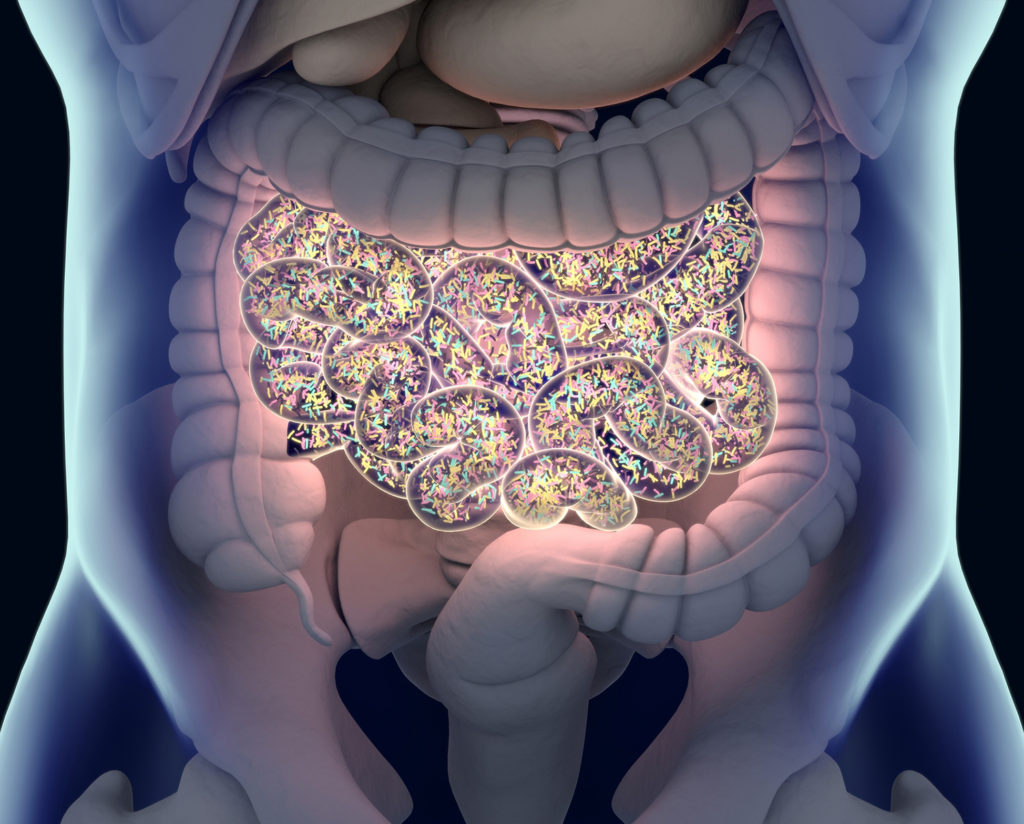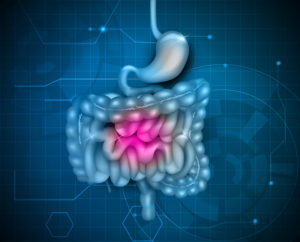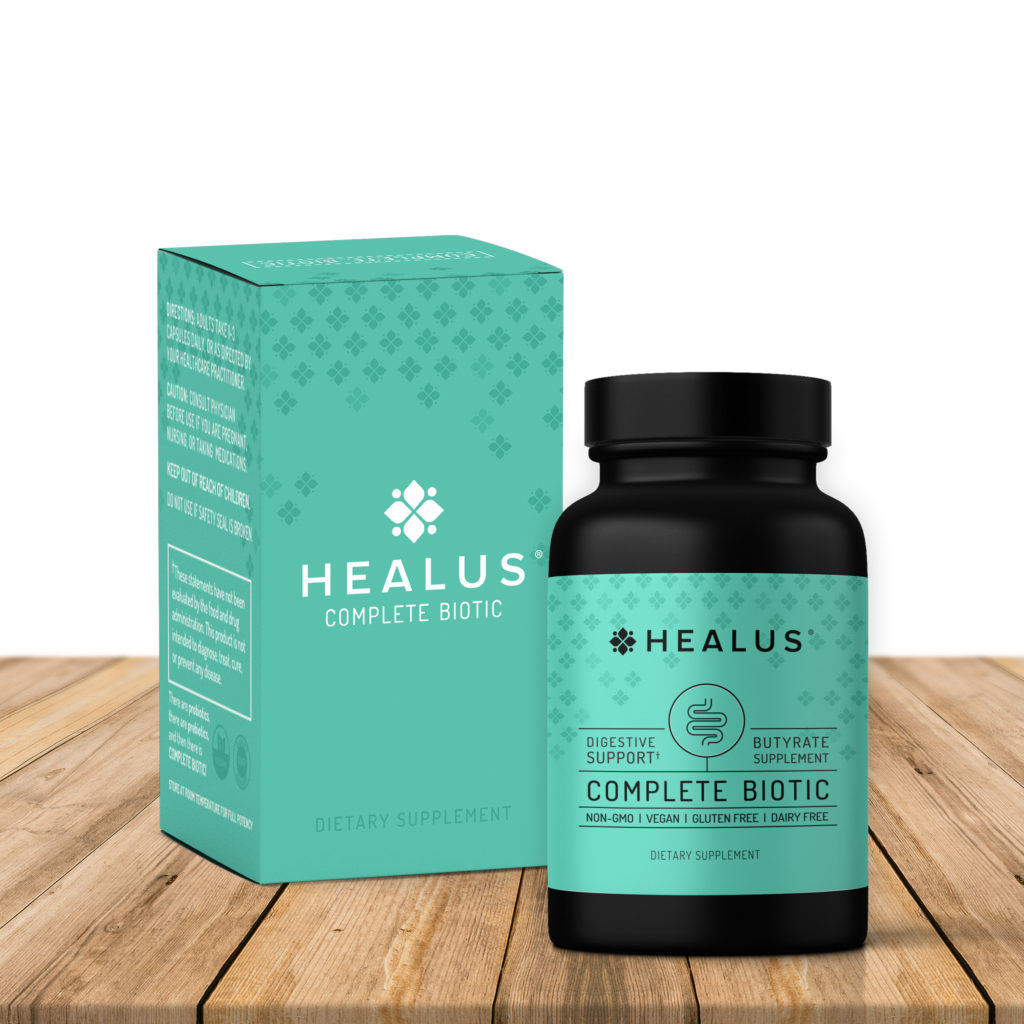
Prebiotics, Probiotics, and Postbiotics – The Latest Science Behind Optimizing Your Gut Flora
Each of us has approximately 100 trillion microorganisms (bacteria, yeasts, and viruses) in our gut microbiota, collectively harboring over 3.3 million genes and releasing thousands of metabolites1,2. The diversity and species composition of our gut microbiome (the collection of microorganism’s genes) adapt to diet changes, stress, and disease states, whereas humans only have 23,000 genes that are constant throughout our lifetimes.
The critical roles of good gut flora include:
- Producing vitamins, such as vitamins B and K3
- Preventing leaky gut by strengthening the gut barrier4
- Promoting healthy immune function, reducing autoimmunity, allergies, and chronic inflammation5,6
- Protecting against pathogens by crowding them out, producing antimicrobial substances, or changing the gut pH7
- Metabolism and activation of hormones and neurotransmitters, including that of thyroid hormones, estrogen, testosterone, serotonin, and dopamine, among others8,9,10,11,12.
- Affecting our brain health and function through the gut-brain axis, including through the vagus nerve13
- Leanness, energy metabolism14
- Cardiovascular risk factors and prognosis15
The gut microbiota affects all aspects of health, and emerging science suggests that improving it may be the key to resolving many modern chronic health problems. Needless to say, the number of probiotic supplements on the market has exploded, and practitioners are increasingly recommending probiotic and prebiotics to treat diseases.
What are prebiotics, probiotics, synbiotics, and postbiotics?

Probiotics are good bacteria species that have been shown to promote health. The most common ones include Lactobacillus, Bifidobacterium, and Streptococcus thermophilus. Most of these live in the large intestine or simply transit through our gut. Probiotics are found in fermented foods and probiotic supplements.
Prebiotics are food that probiotics love, which include soluble fibers and resistant starch. Soluble fibers include chicory root inulin, fructooligosaccharides, psyllium husks, and are also found in fruits, vegetables, grains, and legumes. Resistant starches are starches that form an indigestible structure in the small intestine, so they arrive into the large intestine undigested and can be fermented by the gut bacteria. Resistant starches are naturally found in green bananas and raw potatoes, but can also be created by repeatedly cooking and cooling rice or potatoes, or chemically created such as Hi-Maize.
Synbiotics refer to a mix of probiotics and prebiotics either in foods or supplements since the combination improves the survival and colonization rate of the probiotics16.
Postbiotics are metabolite byproducts produced by the gut bacteria. These include beneficial substances such as short-chain fatty acids, hormone and neurotransmitter metabolites, and components of bacterial cells17.
Do probiotic supplements work?

Despite many studies demonstrating promising benefits of a healthy gut flora, both our founders and colleagues have not observed any health benefits from probiotic supplements that are available on the market.
And Indeed, scientific evidence suggests that probiotic supplements may not be as beneficial as it sounds. In 2018, two studies published in the prestigious journal Cell found demonstrated this by studying the impact of probiotic supplements on the actual gut microbiome. First, they found that adult mice and humans resist supplemental probiotics from colonizing or making the gut a home. Each individual allows a unique selection of species to colonize based on health status and existing microbiome18. Host factors, such as genetics and the state of the gut immune function, determine how much their guts let certain bacteria colonize or not.
The same group also tested whether probiotics would colonize more readily after antibiotic treatments. They found that the colonization occurred more readily after antibiotics. However, the people and mice that took the probiotics needed months before their gut bacteria normalize to the same state before the antibiotics. Whereas, those who received fecal microbiota transplant needed only days to normalize their gut microbiome19.
The authors suggest that we should rethink the risk-benefit of probiotic supplementation after antibiotic use, and also that perhaps individualized probiotic blends would be safer and more effective. Interestingly, certain probiotic strains, such as Lactobacillus rhamnosus GG and Saccharomyces boulardii help prevent antibiotic-associated diarrhea even though they do not colonize the gut20,4.

These studies also found that the microbiome compositions inside the gut could be significantly different than those in the stool, so previous microbiome studies that relied on stool tests may have produced inaccurate results18,19.
Suffice to say, currently, we know that a healthy gut microbiome is important for health. However, much of microbiome research remains a mystery and probiotic supplements may not be the way to create a healthy gut microbiome. Here’s why:
1) We still don’t fully understand what a healthy microbiome looks like
The human gut microbiota composition is highly variable. It varies significantly between different stages of life, from birth to old age, and from location to location. Each individual has their own signature combination of bacteria depending on their gut’s immune system and environment. While we know that gut bacterial diversity and the presence of certain groups of bacteria are beneficial, there is no one size fits all combination21.
2) We have a two-way relationship with our gut microorganism
The idea that ingesting probiotics improves the gut microbiome is oversimplified and short-sighted because your body will determine which species get to stay or predominate18. Your gut microbiota influences your brain, but your brain also controls the community structure and function of the gut microbiota through the vagus nerve and other communication signals22.
People with chronic inflammation may have a hyperactivated Cell Danger Response, which is characterized by reduced mitochondrial function, increased blood purines (a DNA building block), and activated immune response23. The host’s Cell Danger Response signals disrupt the gut microbiome and may cause the gut to reject all good bacteria.
3) Many other factors change the microbiome more than probiotics
Because our bodies have a 2-way relationship with our gut bacteria, several other lifestyle factors and health status affect the microbiome more than the probiotics or prebiotics that we ingest. These include:
- How we were born and raised (vaginal or C-section), whether we were born full-term, and whether we were breastfed heavily influence our lifetime microbiome24.
- Diet. For example, high-meat and high-fat diets promote bile-resistant strains, resulting in major changes in microbiome composition within 2 – 3 days25.
- Exercise improves the gut microbiome26
- Antibiotic use may permanently change the gut microbiome27
- Stress changes the function, composition, and activities of the microbiome28
- Disease states, such as diabetes, obesity, IBS, IBD, and cancers change the microbiome29,30
4) Probiotic bacteria do not survive digestion well

In order for probiotics to be beneficial, at least 10 – 100 million cells need to survive all stages of digestion and arrive at the large intestine alive31,32. However, our digestive system is made to kill them all with the stomach acid, digestive enzymes, and bile. Most probiotic supplements on the market are not tested for their ability to survive the digestive system or even the number of live bacteria that reaches the end consumers. Probiotic supplements that include digestive enzymes are likely to reduce the survival of the bacteria even further.
5) Probiotics may have unintended harmful effects
Probiotics, or even fermented functional foods, may have unintended side effects. In the US, there are no strict regulations that control strain selection or testing protocols for the safety and effectiveness of any dietary supplements. While the FDA requires supplement manufacturers to follow Good Manufacturing Practices to control the potency and purity of the products, they do not require clinical trials in humans. While the products may be safe in healthy people, they may cause adverse outcomes in people with certain health problems, such as:
Immune stimulation: Bacteria, including probiotics, naturally have complex interactions with the immune system and may trigger autoimmunity33. Certain bacteria strains may promote allergic responses, while others promote autoimmunity, and others promote tolerance.
Antibiotic resistance transfers: Antibiotic resistance is a major public health crisis because it renders the existing available antibiotics ineffective for life-saving treatments of infections, wounds, and surgeries. Bacteria can transfer antibiotic-resistant genes between each other. Some probiotic supplements or even fermented foods may contain microorganisms that carry such transferable antibiotic resistant genes, which can place you at risk of having untreatable infections34.
Beyond probiotic supplementation
Probiotic is not the only way, and definitely not the most effective way, to improve the gut flora. There are several prebiotic and synbiotic supplements and food products on the market.
Prebiotics may help promote the growth of good bacteria in the large intestine and replicate several health benefits of probiotics35. In addition, the co-presence of pre- and probiotics can improve the survival of the bacteria, so the synbiotic supplements or foods may be even more helpful36.

Prebiotics (and thus probiotics) are not without side effects. Side effects of prebiotics include diarrhea, bloating, cramping flatulence, and, in some cases, constipation, especially in those with small intestine bacterial overgrowth due to abnormal gut movements. Synbiotics and probiotics are more likely to have side effects in people with abnormal gut movements, such as those with IBS, the elderly, cancer patients, and some other chronic health problems35.
Most of the health benefits of probiotics are due to postbiotics, such as from short-chain fatty acids37. Among them, butyrate has the most potent health benefits and is well-tolerated, even in people with chronic health problems because it bypasses the potential dangers and inefficiencies from probiotic and prebiotic use. In fact, several studies that evaluate the quality of the microbiome specifically count butyrate-producing bacteria. Butyrate not only mediates most of the health benefits of probiotics but also improves the gut microbiome composition38,39.
The problem with butyrate, as with other short-chain fatty acids, is that it is rapidly digested and eaten by the gut cells, including in the stomach and small intestine40,41. In order for the butyrate to benefit the whole body, it needs to reach the large intestine, stay there for long enough, and get absorbed into the bloodstream. Therefore, you would usually need a large dose of it to experience any health benefits. As a result, several delivery systems of butyrate have been developed and tested, with the most potential in cancer treatments.
Tributyrin is the triglyceride form of butyrate naturally found in butter. It can be digested into butyrate and glycerol in the digestive system. Oral tributyrin has superior pharmacokinetics than oral butyrate, meaning that the released butyrate from tributyrin is better absorbed and used than from butyrate supplements42.

Complete Biotic is developed taking all the available research on probiotic, prebiotic, and postbiotic into account. It is a tributyrin supplement in capsules that are designed to survive the digestive system and release the tributyrin in the large intestine for maximum health benefits.
In the next article, we will cover the health benefits of butyrate and different forms of butyrate supplements.
